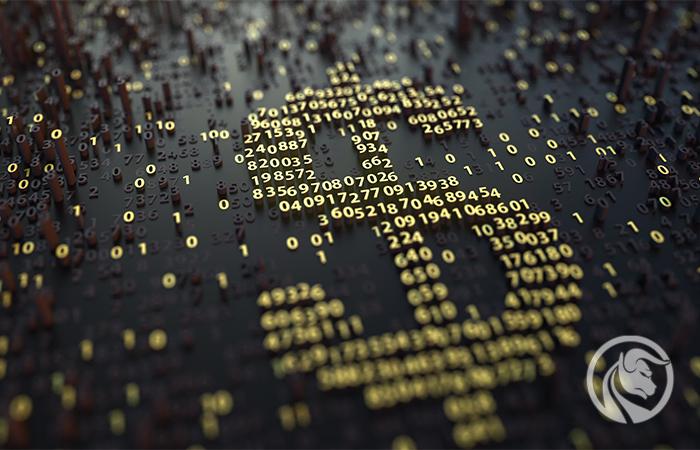Digital dollar as a medicine to increase money in the economy
We live in an era where the vast majority of our everyday matters can be easily solved in virtual reality. The pandemic period also forced older generations to acquire greater Internet skills. This is a good start to resume the topic of financial system support blockchain based technology. Due to the limited possibility of functioning in the real world (we generalize to quarantine and many different restrictions), life moves to digital reality. In the United States, the virtual dollar theme returns almost like a boomerang, this time with a new bill.
The Act does not forget about the FED
To a large extent, the digital dollar is to be based (in accordance with the assumption of the first version of the act, which was abandoned) on stablecoins, i.e. with a large omission of blockchain technology. There are really many concepts for its creation, starting from the Hyperledger Consortium, which proposed to create it on the basis of "action" ethernum. The bill can be compared to trying to launch an e-dollar as something in shape Libra.
A very interesting entry in this act is the mention of the "owner" of this digital asset. Namely, it points to Federal Reserve. If we look at the world of cryptocurrencies to a large extent, they are largely managed and issued by companies that released them (such as Libra). Here, however, the role of the enterprise is taken over by the Fed. Pursuant to the Act, the US Congress would authorize the Federal Reserve to create its own accounts. Settlements (we are talking about nationwide settlements, both individual and institutional) would be done using digital wallets.
Digital dollar and control
It is true that the digital dollar has practically equal numbers of supporters and opponents. The main problem noticed by economists is the FED's great freedom in operating e-currency. On the one hand, the dependence of a unit of account on only one entity may seem dangerous from the point of view of monetary policy. However, in the legal and organizational context, this does not cause confusion, and the system is clear. E-dollar is a big chance and on the other hand a big threat. Authorities are still unfavorable to e-payments, whose billing model is inspired by blockchain technology. Will the bill be taken seriously this time? I leave the answer to this question open until an official resolution.






















![Forex Club – Tax 9 – Settle tax on a foreign broker [Download the Application] Forex Club - Tax 9](https://forexclub.pl/wp-content/uploads/2024/02/Forex-Club-Podatek-9-184x120.jpg?v=1709046278)
![Trading View platform – solutions tailored to the needs of traders [Review] trading view review](https://forexclub.pl/wp-content/uploads/2024/03/trading-view-recenzja-184x120.jpg?v=1709558918)
![How to connect your FP Markets account to the Trading View platform [Guide] fp markets trading view](https://forexclub.pl/wp-content/uploads/2024/02/fp-markets-trading-view-184x120.jpg?v=1708677291)
![How to invest in ChatGPT and AI? Stocks and ETFs [Guide] how to invest in chatgpt and artificial intelligence](https://forexclub.pl/wp-content/uploads/2023/02/jak-inwestowac-w-chatgpt-i-sztuczna-inteligencje-184x120.jpg?v=1676364263)


![WeWork – the anatomy of the collapse of a company valued at $47 billion [WeWork, part II] wework bankruptcy story](https://forexclub.pl/wp-content/uploads/2024/04/wework-bankructwo-historia-184x120.jpg?v=1711729561)
![Adam Neumann – the man who screwed up Softbank [WeWork, part AND] adam neumann wework](https://forexclub.pl/wp-content/uploads/2024/04/adam-neumann-wework-184x120.jpg?v=1711728724)





![How to transfer shares to another brokerage office [Procedure description] how to transfer shares to another brokerage house](https://forexclub.pl/wp-content/uploads/2024/03/jak-przeniesc-akcje-do-innego-biura-maklerskiego-184x120.jpg?v=1709556924)

![The most common mistakes of a beginner trader - Mr Yogi [VIDEO] Scalping - The most common mistakes of a beginner trader - VIDEO](https://forexclub.pl/wp-content/uploads/2024/03/Scalping-Najczestsze-bledy-poczatkujacego-tradera-VIDEO-184x120.jpg?v=1711601376)
![Learning patience: No position is also a position - Mr Yogi [VIDEO] Scalping - Learning patience - No position is also a position - VIDEO](https://forexclub.pl/wp-content/uploads/2024/03/Scalping-Nauka-cierpliwosci-Brak-pozycji-to-tez-pozycja-VIDEO-184x120.jpg?v=1710999249)
![When to exit a position and how to minimize losses - Mr Yogi [VIDEO] Scalping - When to exit a position and how to minimize losses - VIDEO](https://forexclub.pl/wp-content/uploads/2024/03/Scalping-Kiedy-wyjsc-z-pozycji-i-jak-minimalizowac-straty-VIDEO-184x120.jpg?v=1710336731)

















